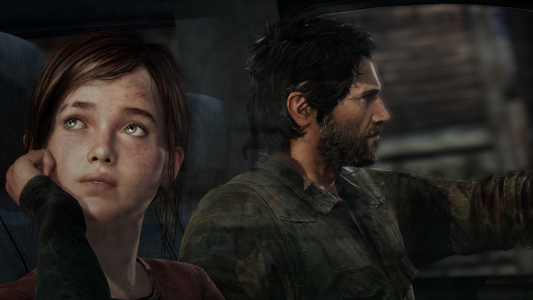Whilst playing through any story driven video game we are supposed to suspend our disbelief and pretend we are the protagonist. We are Gordan Freeman, we are Booker DeWitt, and we are Lee Everett.
Now, I feel I need to state early that this will not apply to everyone and mostly adheres to story driven games. So no, I don’t expect gamers to care about Mario or the Princess, or the injury-proof motorcyclists of Trials: Evolution.
I am fully aware that some gamers become more emotionally invested in characters than others, as some gamers play purely for fun or only trapse through the single player modes when bored or on their way to multiplayer. Also, not every character is relatable, therefore we cannot be expected to care about them in the slightest. But this largely comes down to poor storytelling or bad dialogue, which usually shatters the suspension of disbelief so vital to believing that you and the main character are one person.
On the other hand, for people like myself who care about a character’s plight as if it were their own, I believe we get the most of story driven video games. Red Dead Redemption is a key example. The final scenes in that game would not be so revered if nobody cared about John Marston. We fought through hell and back as him and we felt something deep when we reached the end of the story.
Another game that hit me hard as the end credits rolled was The Last of Us. Naughty Dog sought out my empathetic side and found it, effectively putting me in Joel’s shoes. I found myself caring for Ellie as much as Joel did. The game hits some harsh truths such as loss and knowing when to move on. The story rivals those told in many of the films I have seen in the last year, with the addition of more believable, likable characters. The game tells us to care about Ellie, we don’t have to, but we do. She’s our little sister or our daughter. She’s our responsibility, and we feel the need to look after her.
Anthony Burch of Rev Rants claimed that it is easier to care for certain characters if they are introduced to the player and the protagonist at the same time. This is because we can’t materialize all the memories that the game says they have. Maybe it is possible, but it is not probable. But by introducing a character to both player and protagonist, it allows the player to decide what they think of this new character along side their on screen persona, making it feel like you are one and the same. Joel is introduced to Ellie at the same time we are and the relationship only grows organically from there.
Mass Effect 2 also executes this perfectly. Shepherd meets a plethora of personalities at the same time as the player during his mission to save the universe from the Reapers. What separates Mass Effect from 90% of the games I have played is that every decision I made affected the fate of the characters Shepard and I had encountered together. This cause and effect style of gameplay leaves the player feeling directly responsible for the safety of everyone who joins Shepherd’s cause. During those intense final scenes I was fortunate enough to only have lost two characters I was less tied to. Had my two favorites died I’m not entirely sure how I would have reacted. The general reaction to the final moments of Mass Effect 2 proves wholeheartedly that strong, emotional character development can leave a long lasting effect on gamers, the same as any book or film can. I mean, why should we care about the death of a character if we don’t care about the actual character?
What ultimately ties these games (and other games I could talk for weeks about, such as The Walking Dead) together is the fact that you can pretend that Ellie is your closest friend in the world, or that Marston’s enemies are your enemies. This makes the game more than just a game. This style of story telling offers a second life and the greatest sense of escapism since the birth of Hollywood and the film industry.


